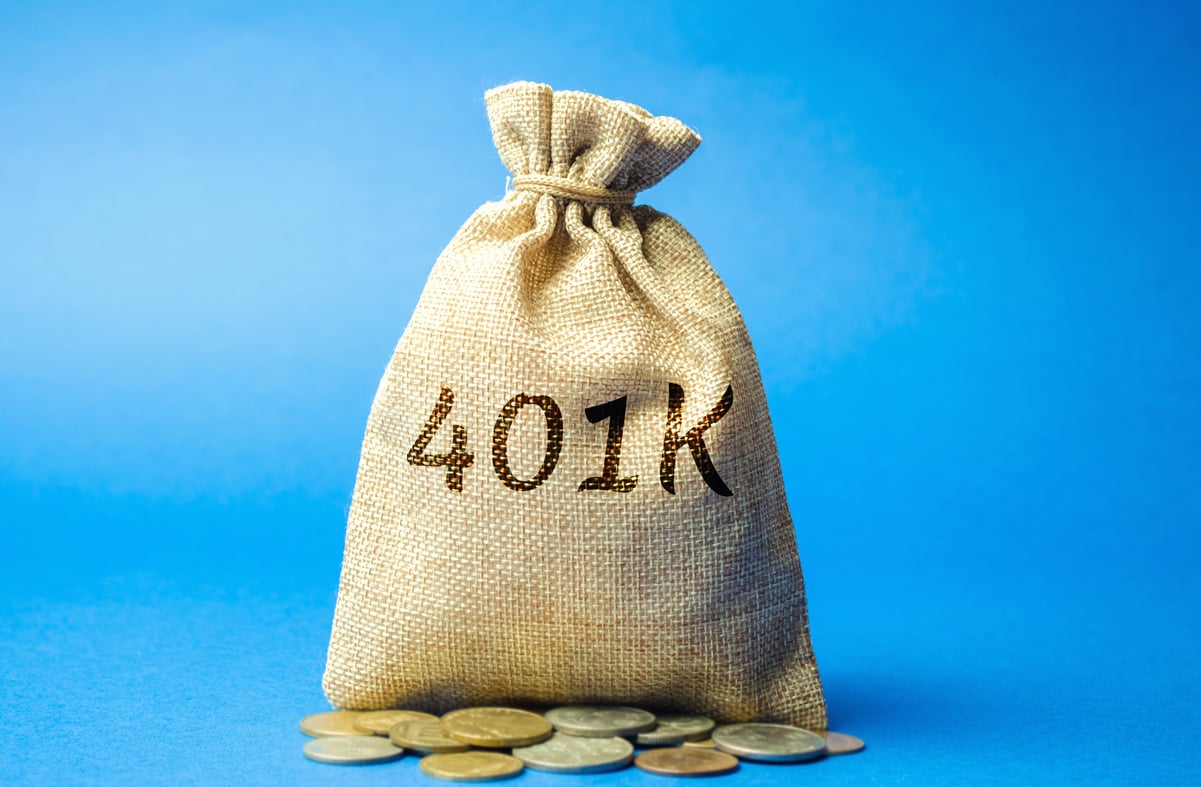If you're falling behind on your retirement savings, you're not alone. Roughly 61% of Americans have less than $100,000 in total savings, and around 42% of those people have saved $10,000 or less, according to a recent GoBankingRates survey.
The No. 1 reason people gave for not having much stashed away? That they don't earn enough money to be able to save anything.

Image source: Getty Images.
No matter how much money you make, it's important to save for retirement unless you plan to work the rest of your life. The good news is that even small contributions to your retirement fund can add up over time, so even if you're not loaded with cash, you can still beef up your nest egg by the time you retire.
Starting small is better than not starting at all
Through the power of compound interest, your savings can grow exponentially over time -- which means that the earlier you start saving, the better. And if you start early enough, even the smallest contributions can ultimately grow to hundreds of thousands of dollars.
For example, say you're just starting out saving and can contribute $50 per month. If you're earning a 7% annual rate of return on your investments, that $50 per month can turn into around $124,275 over 40 years. Granted, that may not be enough to last you through retirement, but it's infinitely better than not contributing anything and ending up with zero retirement savings.
Also, by waiting even a few years to start saving, you'll have a much more difficult time catching up. In this instance, if you're saving $50 per month, waiting just five years to start saving will leave you with just $86,054, rather than $124,275 had you started saving earlier -- a difference of nearly $40,000.
If you start early enough, even big savings goals are more achievable. For instance, say you want to have $500,000 saved by the time you turn 65. If you're earning a 7% rate of return on your investments each year, here's how much you'd have to save every month to meet that goal depending on when you start saving:
| Age You Start Saving | Contributions per Month | Total Savings at Age 65 |
|---|---|---|
| 25 | $200 | $497,102 |
| 35 | $425 | $499,827 |
| 45 | $980 | $500,198 |
| 55 | $2,900 | $498,855 |
This is not to say that if you get a late start that it's not worth saving at all; even a small retirement fund is better than no retirement savings at all. But if you're stuck in the starting gate because you're worried small contributions are worthless, it's better to put whatever you can toward your retirement fund while time is on your side.
The 401(k): Your secret weapon
If you have access to a 401(k) through your employer with matching contributions, take full advantage of it. Those matching contributions from your employer can double your savings, creating even bigger gains over time.
For example, say you're earning $40,000 per year, and your employer will match 100% of your contributions up to 3% of your salary -- or up to $1,200 per year. If you contribute $1,200 per year yourself (or $100 per month), that brings your total yearly savings to $2,400. At that rate, assuming a 7% annual rate of return on your savings, you'll have around $512,663 saved after 40 years. Not bad for contributing what amounts to around $3 per day.
Even if you can't contribute enough to earn the full employer match, every little bit counts -- after all, not contributing anything is essentially leaving free money on the table. If you're contributing, say, $50 per month (or $600 per year) and your employer matches that $600 per year, you'll end up with just over $250,000 after 40 years. Again, not too bad for making relatively small contributions each month.
When you're focused on just paying the bills each month, saving for retirement may be the last thing on your mind. But you don't need a lot of money to build up your retirement fund, because even baby steps will take you a long way over the course of your career.





